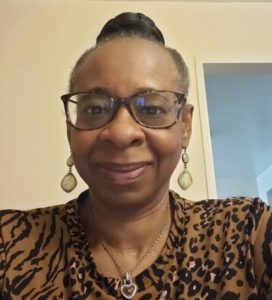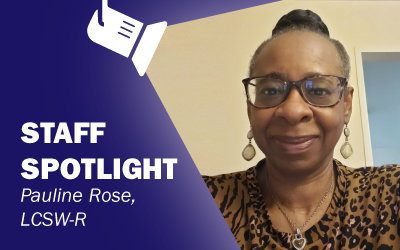
Director, Health Homes
JCCA sat down with Pauline Rose LCSW-R, Director of JCCA’s Health Homes in the Bronx. Our discussion touched on what a Health Home is — and isn’t — as well as her role as a mentor and advocate. Our conversation has been edited for length and clarity.
JCCA: Tell me first what Health Homes is?
First of all, it’s not a home. We can look at it as a home as it is a home to many services. We provide services for children of any age up until twenty-three. When they are adults, they are enrolled in an adult Health Home operated by another community-based organization. There are many of them across the city. At JCCA, we are part of the Care Management division.
JCCA: Can you tell me a little more about your role? What is the day-to-day like for you and your staff?
What we do is coordination of services, connecting members with medical providers that work better for them, mental health providers, and/or services in the community or here at JCCA. The children in the program have to have a mental health or chronic medical condition, complex trauma, or they can be in the category of SED (Seriously Emotionally Disturbed). We connect them to services they need, coordinate with their providers, and make sure services are helpful to them. We see if they need more services, or less, and so on.
Sometimes our work is as simple as making appointments and making sure they keep those appointments. Importantly, Care Managers connect clients with resources in the community — food resources, housing, educational support, public assistance, and provide support to the child and family. We are caring for the children in all aspects of their daily lives
JCCA: Wow, it sounds like you and your team offer a really diverse array of services.
Yes, it’s whatever they need. Before the pandemic all of our services were through in-person encounters including visits to the home or with other providers in the community. Once the pandemic hit, all our services became virtual. We started doing visits again in August or September, but there are some parameters around when staff visit and who they visit. We don’t do visits often, however
JCCA: You really know the ins and outs of this program. How long have you been doing this work?
I’ve been at JCCA for twelve years. I’ve remained in Care Management for all twelve years. I always say that social work is hard, but I stay, and I say, “There is someone that needs something to make their life better, and if I can be a part of that, then that’s reason to stay.”
JCCA: What do you love most about your job?
I love being able to offer help to clients. I enjoy teaching and guiding my staff, so they are able to succeed, or better themselves, or move up. I got a lot of gratification from my supervisor when I was a student, when I was an intern, and I always wanted to be there for new social workers. Sometimes it’s a challenge. Some say I’m hard, but I like people to do their best — with support. I’m inspired by staff accomplishments. I am inspired by what we are able to do at work. It inspired me because it felt like we can do things for people.
JCCA: What are, right now, some of the biggest challenges?
COVID! COVID is a big challenge. We’ve learned to work with it because we started working remotely early on, but things for staff we used to be able to do, like parties in the office as a group, we miss those. I have to say we are sometimes challenged by the amount of work we have coming in. Navigating the system is a challenge, because everything is virtual. Trying to get something out of the Department of Education…. The Bronx is sometimes hard! There aren’t always the resources we need in the Bronx.
JCCA: I was told you are involved in the Race Equity Committee. Tell me about why you are involved.
It’s part of my passion, and I feel, my responsibility to my community and people of my race. It’s my responsibility to always know as much as I can and advocate as much as I can. Most of the clients we have in the Bronx are Latino or African American. Sometimes, I get very concerned about why some people cannot move forward. But I know racial inequity is a structural thing, which is why when people come to JCCA for help, we have to make sure we are doing all that we can to get them the help that they need. It might not transform their whole lives, but sometimes it transforms a lot in their lives.
JCCA: Is there anything you’d like to share about your job or you that I didn’t ask about?
I am dedicated to this place. I know that I am quiet, so people may wonder what I’m doing. I’m listening and I’m thinking; I’m always looking for opportunities to improve myself. But it helps me stay dedicated, because otherwise you’d be burnt out. It takes a level of commitment and integrity to know why you are in this line of work— you are there to serve people. Over the years, I have grown a lot and I hope I continue to grow. Whatever is coming up, I hope my colleagues feel that I can support them.
